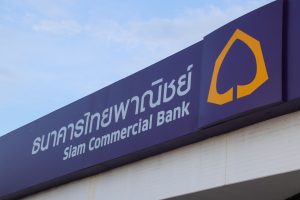Thailand has emerged as the leading source of banking services to Myanmar’s military junta, and a key financial conduit for the procurements of arms and other military equipment, as Western sanctions have restricted the junta’s access to the international financial system, a United Nations-sponsored investigation has found.
The report, which was authored by Tom Andrews, the U.N. special rapporteur on the situation of human rights in Myanmar, tracks how the military junta has been able to continue procuring arms by shifting suppliers of financial services and military hardware in response to the sanctions imposed by a number of foreign governments.
The report claims that the military junta, known officially as the State Administration Council (SAC), “continues to engage with a broad international banking network to sustain itself and its weapons supplies.” This has helped sustain the SAC’s ferocious campaign to crush those resisting its rule.
“Over the past year, 16 banks located in seven countries processed transactions related to SAC military procurement; 25 banks have provided correspondent banking services to Myanmar’s state-owned banks since the coup,” states the report.
But Andrews notes a “significant shift in both the amount and source of weapons, dual-use technologies, manufacturing equipment, and raw materials that the SAC has been able to secure from abroad.” Overall, there has been a sharp decline in formal financial transactions connected with weapons procurements, due mainly to the imposition of Western sanctions on important state-owned banks.
The SAC’s procurement of weapons and related equipment through the formal banking system declined by a third to $253 million in 2023, from $377 million in the previous fiscal year. Arms transfers from China declined from $140 million in 2022 to $80 million over the same period.
The most marked shift, noted the report, is Thailand’s emergence as the SAC’s “leading source of military supplies purchased through the international banking system.” Thai banks have taken up the slack following crackdowns in Singapore, a nation that had for many years previously served as an offshore trade hub and financial sanctuary for the Myanmar military and its galaxy of allied businesspeople.
A report published by Andrews last year documented that Singapore-based entities had become the military junta’s third-largest source of weapons materials, after Russia and China, despite the government’s opposition to the transfer of weapons to Myanmar. In 2022, the advocacy group Justice for Myanmar also identified 38 Singapore-based companies that had been involved in supplying the military with weapons, both before and after the 2021 coup.
Following a subsequent investigation by the Singaporean authorities, “the flow of weapons and related materials to Myanmar from Singapore-registered companies dropped by nearly 90%,” from $110 million to just $10 million, Andrews wrote in the report. The total payments processed by Singaporean banks fell from $260 million to around $40 million.
The numbers in Thailand moved in the opposite direction, with transfers of weapons and related materials from companies registered in Thailand doubling from over $60 million in 2022 to nearly $130 million last year. These included the purchase of spare parts for Mi-17 and Mi-35 helicopters and K-8W light attack aircraft, which were previously sourced via Singapore-based entities. All of these were used to conduct airstrikes on civilian targets.
Thai banks have played a crucial role in this shift. Siam Commercial Bank, for example, facilitated just over $5 million in transactions related to the Myanmar military in the fiscal year ending March 2023, but the figure leapt to more than $100 million the following year.
While the report demonstrates the junta’s ability to adjust to each turn of the financial screw, it also suggests that the campaign of Western sanctions is beginning to have an effect. Andrews notes that following the imposition last year of U.S. sanctions on two state-owned banks, the Myanma Foreign Trade Bank (MFTB) and the Myanma Investment and Commercial Bank, the junta responded by shifting the majority of its banking functions to Myanma Economic Bank (MEB), an unsanctioned state-owned bank.
MEB has since processed tens of millions of payments for “military procurement, receipt of international taxes and fees, and repatriation of foreign revenues from state-owned enterprises.” However, while Australia and Canada have also imposed sanctions on the first two banks, no foreign government has targeted MEB. As the report stated, “it is essential that the international community shut down MEB’s international banking access through coordinated sanctions.”
He added that the sudden drop-off in economic activity in Singapore shows that even unilateral actions by national authorities could have a decisive effect.
“If the government of Thailand were to respond to this information as the government of Singapore did one year ago, the SAC’s ability to attack the people of Myanmar would be significantly impaired,” the report states.
Banks themselves can also do more to scrutinize any transactions with Myanmar-based entities. In the report, Andrews notes that Kasikornbank, Thailand’s second largest, confirmed that it ended banking relations with MFTB after the latter was sanctioned by the U.S. government last year. Military procurement transactions through Kasikornbank subsequently fell from $35 million in 2022 to $5 million in 2023, the report stated.
































